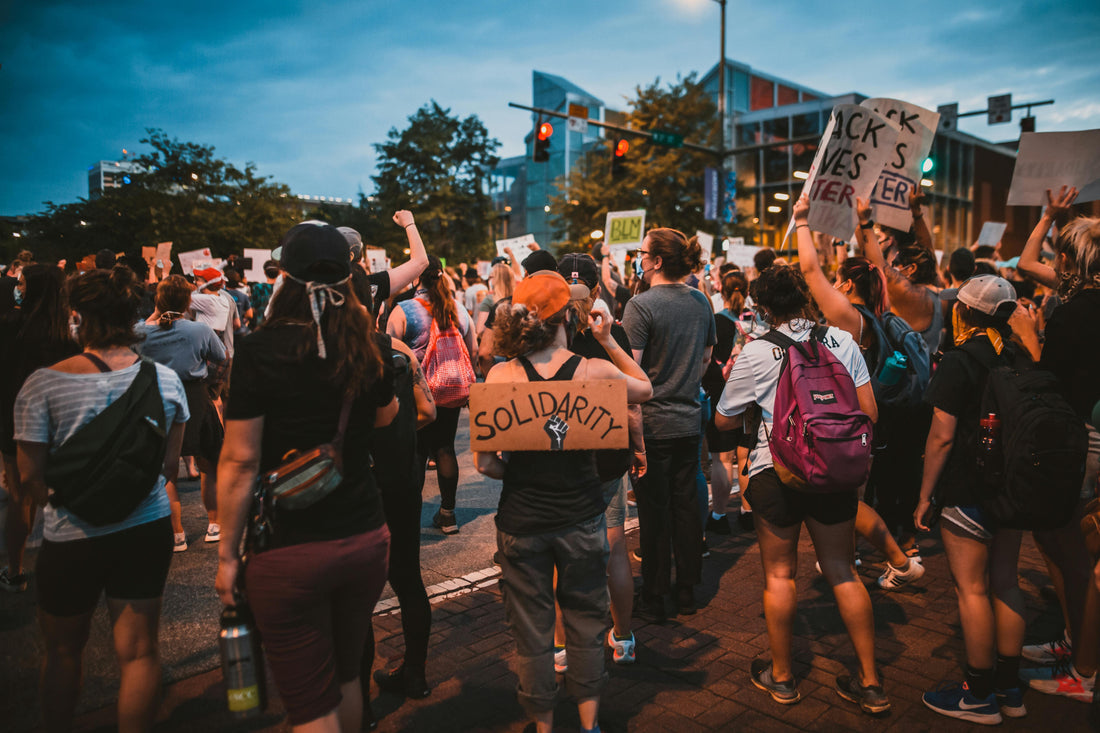
United for a Regenerative Future
Share
The Power of Unity
As we confront the undeniable reality of the climate crisis, it becomes clear that our current systems and the divisions they foster are failing us. The stakes are higher than ever, and if we are to address this issue seriously, we must come together in collaboration and unity.
Unity is not just a lofty ideal; it's a practical necessity. When communities, businesses, and governments work together, they can pool resources, share knowledge, and implement comprehensive strategies that are far more effective than isolated efforts. For example, collaborative initiatives in cities like Copenhagen have shown significant reductions in carbon emissions through combined efforts in transportation, energy, and waste management (CDP Homepage) (Island Times).

A Call for Systemic Change
Imagine a system where collaboration replaces conflict, and unity supersedes division. It might seem like a distant dream, but it’s a vision worth striving for. We need solutions that bring us together, not tear us apart.
Systemic change involves reevaluating and redesigning our political, economic, and social structures to prioritise sustainability and collective well-being. This includes policies that incentivise renewable energy, sustainable agriculture, and green manufacturing. For instance, Germany's Energiewende (energy transition) demonstrates how a nation can shift towards renewable energy sources through systemic policy changes (UN Barbados & Eastern Caribbean).

The Reality of Bias
Consider this: when we meet someone on the street, we generally get along fine. But when media narratives inform us that this person is from another country, biases and prejudices can emerge. This is not who we are at our core.
Media and political narratives often exacerbate divisions by emphasising differences rather than commonalities. Overcoming these biases requires conscious effort and systemic change in how information is presented and consumed. Studies have shown that exposure to diverse cultures and collaborative projects can significantly reduce biases and foster a sense of global citizenship (Island Times).

Building a Regenerative World
Through our products, industries, and manufacturing practices, we have the power to create a world that is both regenerative and kind. By focusing on sustainability and ethical practices, we can contribute to a healthier planet and a more united human community.
Regenerative practices go beyond sustainability; they aim to restore and enhance the natural environment. This includes regenerative agriculture, which restores soil health, and circular economy models that minimise waste and maximise resource efficiency. Companies like Patagonia and Interface are leading examples of how businesses can adopt regenerative practices (UN Barbados & Eastern Caribbean).

The Upcoming Election
With a general election on the horizon, we have a unique opportunity to advocate for change. One bold way to signal our desire for a different kind of democracy is to vote for NONE OF THE ABOVE and spoil our votes.
Spoiling votes can be a form of protest to express dissatisfaction with the current political options. While this might seem radical, it can draw attention to the need for political reform and the establishment of systems that better represent the will of the people. Historical examples include the "Blank Vote" campaigns in Spain and Colombia, which highlighted citizens' demand for better governance (CDP Homepage).

Moving Forward Together
It’s time to rise above the division and work together for the common good. Let’s leverage our collective strength to promote a regenerative, inclusive, and sustainable future. Every action we take, from the products we choose to the way we vote, can contribute to this vision.
Moving forward together means recognising our shared humanity and common goals. It involves actively seeking out partnerships, supporting policies that promote inclusivity and sustainability, and making daily choices that reflect our commitment to a better world. The success of the Paris Agreement demonstrates how global cooperation can lead to significant progress in tackling climate change (UN Barbados & Eastern Caribbean) (Island Times).
Conclusion
By working together, we can make a significant impact. Our current systems may promote division and conflict, but through unity, collaboration, and a commitment to sustainable practices, we can create a future that benefits everyone. Let’s use our collective power to advocate for the changes we need and build a world that is regenerative, inclusive, and kind.

Call to Action
Together, we can make a difference. Share this newsletter, get involved in local sustainability initiatives, and make your voice heard in the upcoming election by advocating for systemic change.
